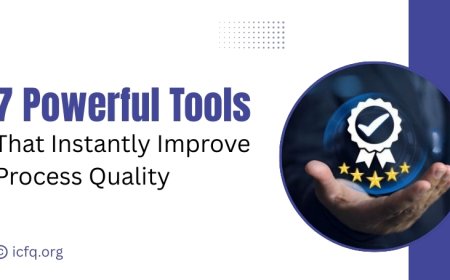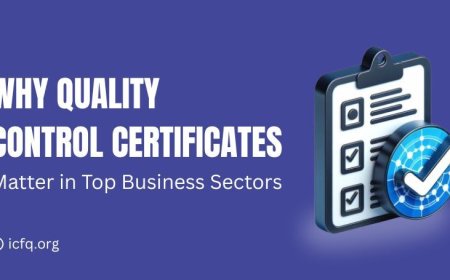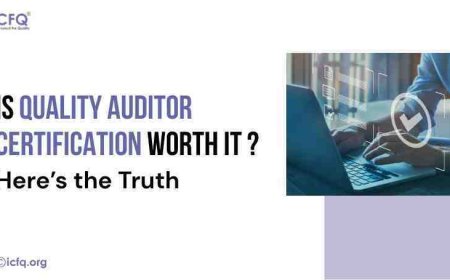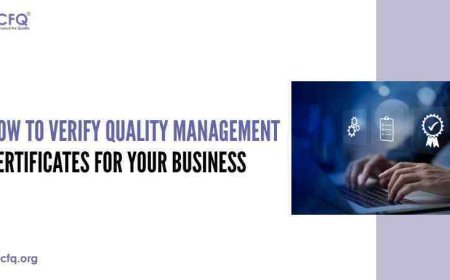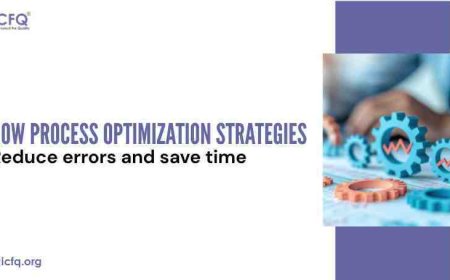Why Quality Certifications Can Boost Your Career
Discover how quality certifications enhance career prospects, offering validation of expertise and credibility in today's competitive job market.
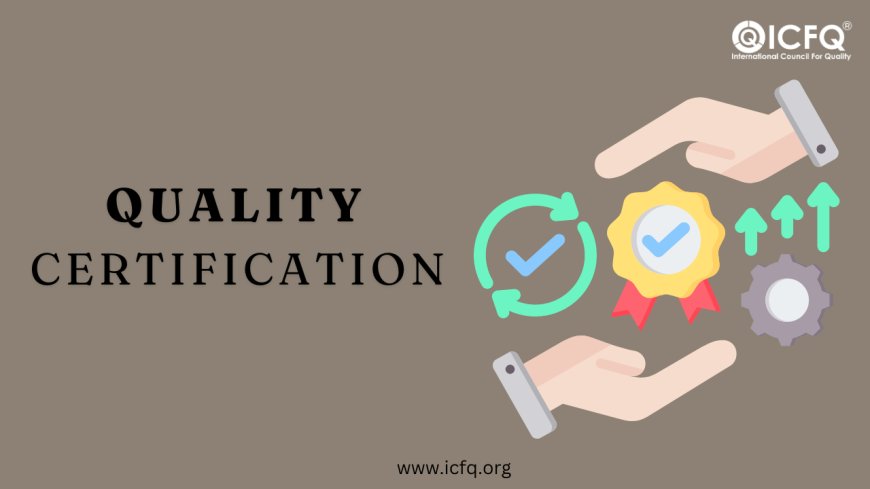
The job market today focuses heavily on specific skills across different industries. Employers are looking for candidates who have the needed technical skills and also excel in soft skills like communication, teamwork, and problem-solving. This need is driven by advancements in technology and the global nature of businesses, which change what jobs require. In fields such as technology, healthcare, and finance, there's an increased need for workers skilled in the latest technologies and methods.
The shift to more remote work has also changed what skills are important, with a bigger emphasis on being able to handle digital tools and work independently. Because industries change quickly, ongoing learning and career development are important for workers to keep their skills current and stay relevant. In summary, today's job market requires workers to continually adapt to new technologies and economic changes to stay competitive.
Standing Out in the Competitive Job Market
Standing out in a competitive job market requires a proactive approach to personal and professional development. Here are some key steps you can take:
-
Skill Enhancement: Continuously update your skills to align with industry demands. This might involve taking online courses, attending workshops, or earning certifications in areas like digital tools, project management, or emerging technologies relevant to your field.
-
Networking: Build and maintain professional relationships through networking. Attend industry conferences, join professional organizations, and connect with peers and mentors on professional social networking sites. These connections can provide insights into industry trends and job opportunities.
-
Personal Branding: Develop a personal brand that highlights your unique skills and experiences. This can be done through a professional online presence, such as a well-crafted LinkedIn profile, a personal website, or industry-related blog posts.
-
Soft Skills: Strengthen your soft skills, such as communication, leadership, and critical thinking. These skills are often just as important as technical abilities and can set you apart in job interviews and workplace evaluations.
-
Experience Diversification: Seek opportunities to diversify your experience, whether through varied job roles, volunteer work, or internships. This broadens your skill set and demonstrates your adaptability and eagerness to learn.
-
Feedback and Self-Reflection: Regularly seek feedback on your performance and areas for improvement. Reflect on your career goals and strategies to achieve them, adjusting your approach as necessary based on the feedback and your assessments.
How do certifications link to professional networks?
Certification programs often include membership in professional organizations or access to exclusive networks, which can be highly beneficial for career development. When you enroll in a certification program, you might automatically become a member of a relevant professional group. This membership typically grants you access to resources like specialized training materials, industry publications, and updates on the latest trends and technologies in your field.
Additionally, being part of these organizations allows you to attend conferences, workshops, and seminars where you can meet and interact with other professionals. This networking opportunity is valuable for sharing knowledge, finding mentors, and possibly discovering job opportunities that are not widely advertised. These exclusive networks and memberships also often include online forums or platforms where professionals can ask questions, exchange ideas, and support each other's growth. Being active in these communities can help you stay engaged with your industry's current issues and innovations.
Meeting Compliance and Regulatory Requirements for Certifications
Certifications play a crucial role in ensuring professionals and organizations meet compliance and regulatory requirements within their respective industries.
-
Legal Adherence: Certifications guide professionals in meeting legal standards set by regulatory bodies, ensuring they comply with industry-specific laws and guidelines.
-
Validation of Skills: Certifications validate individuals' abilities to meet regulatory requirements effectively, demonstrating their proficiency in understanding and implementing compliance measures.
-
Structured Framework: Certifications provide a structured framework for professionals to comprehend and implement regulatory requirements systematically, helping them navigate complex legal landscapes with clarity.
-
Commitment to Compliance: Holding certifications showcases professionals' commitment to maintaining compliance and upholding ethical standards, instilling confidence in stakeholders regarding their adherence to regulatory frameworks.
-
Risk Mitigation: Certified professionals help organizations mitigate risks associated with non-compliance, reducing the likelihood of legal consequences and safeguarding against reputational damage.
-
Staying Updated: Certifications often require individuals to stay updated with evolving regulations, ensuring ongoing compliance and alignment with industry standards to meet changing legal requirements.
-
Employer Prioritization: Employers prioritize hiring certified professionals to ensure compliance and minimize legal risks, recognizing the value of certified expertise in maintaining regulatory standards.
-
Assurance to Stakeholders: Certifications assure clients and stakeholders that products and services meet regulatory standards, fostering trust and confidence in the organization's operations.
-
Industry Integrity: Overall, certifications contribute to upholding industry integrity by ensuring professionals and organizations meet compliance and regulatory requirements, and promoting accountability, transparency, and trust within various sectors.
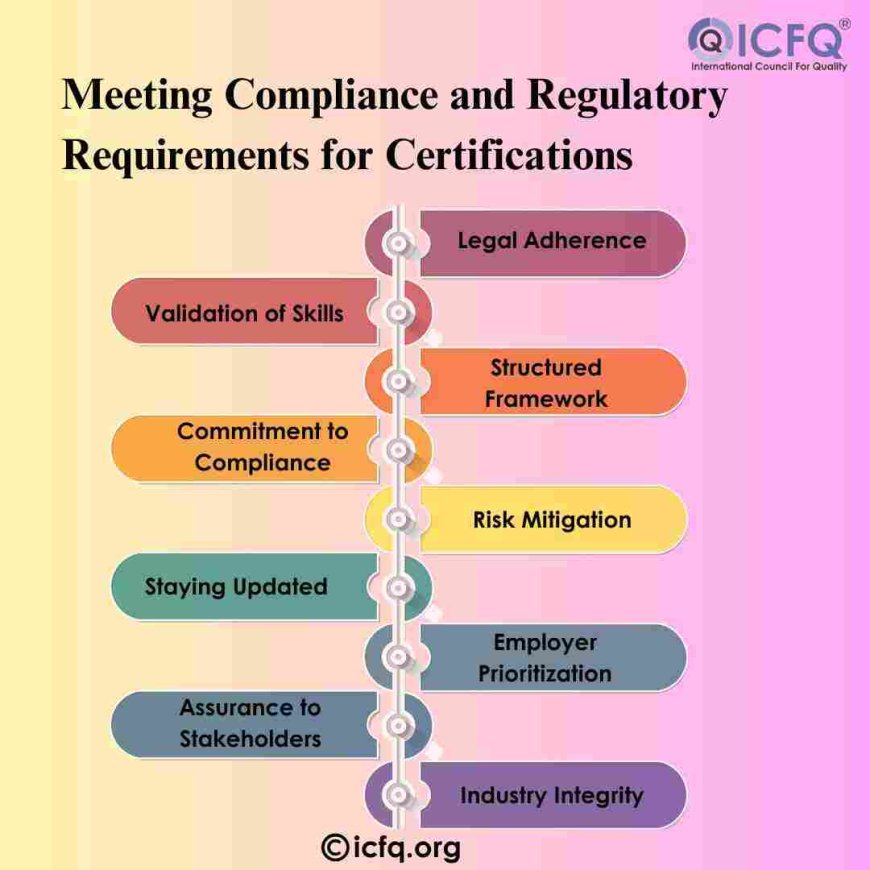
Do certifications boost professional credibility?
Yes, certifications significantly enhance professional credibility. These credentials serve as tangible proof of a person's expertise and proficiency in a particular field or skill set. When a professional earns a recognized certification, it demonstrates to employers, clients, and peers that they have undergone rigorous training and possess the necessary knowledge to excel in their role.
Moreover, certifications often require individuals to stay updated with the latest industry standards and practices through continuing education or recertification processes. This ongoing commitment to learning reinforces the credibility of certified professionals, as it ensures they remain knowledgeable and capable in their respective domains. Additionally, certifications are often endorsed by reputable organizations or institutions, further solidifying their credibility and value in the eyes of employers and stakeholders. Overall, certifications serve as a powerful tool for professionals to validate their expertise and distinguish themselves in competitive job markets or industries.
Certifications in Industry Standards for Professional Skills
In industries like Information Technology (IT), certifications are often essential for professionals to demonstrate their expertise in various technologies and platforms. For instance, in cybersecurity, certifications such as Certified Information Systems Security Professional (CISSP) or Certified Ethical Hacker (CEH) are highly valued, as they indicate specialized knowledge and skills in protecting digital assets from cyber threats. Similarly, in the healthcare sector, certifications like Registered Nurse (RN) or Certified Medical Assistant (CMA) are necessary for individuals to practice in their respective roles, ensuring they meet the required standards of competency and safety.
Moreover, certain industries, such as project management, heavily favor professionals with certifications like Project Management Professional (PMP) or Agile Certified Practitioner (PMI-ACP). These certifications validate a person's ability to effectively manage projects and teams, which is crucial for delivering successful outcomes within budget and timeline constraints. In fields like finance and accounting, certifications such as Certified Public Accountant (CPA) or Chartered Financial Analyst (CFA) are highly regarded, as they demonstrate a deep understanding of complex financial concepts and regulations.
Overall, specific certifications are often either mandated or strongly preferred in certain industries because they ensure that professionals possess the necessary skills, knowledge, and standards of practice required to perform effectively and maintain the integrity of their respective fields.
certifications serve as valuable assets in the job market, helping professionals stand out, secure better job prospects, and meet industry standards. Individuals need to evaluate their career goals and consider pursuing certifications that match their career path and align with industry demands. By obtaining relevant certifications, individuals can enhance their skills, increase their credibility, and unlock new opportunities for career advancement.










